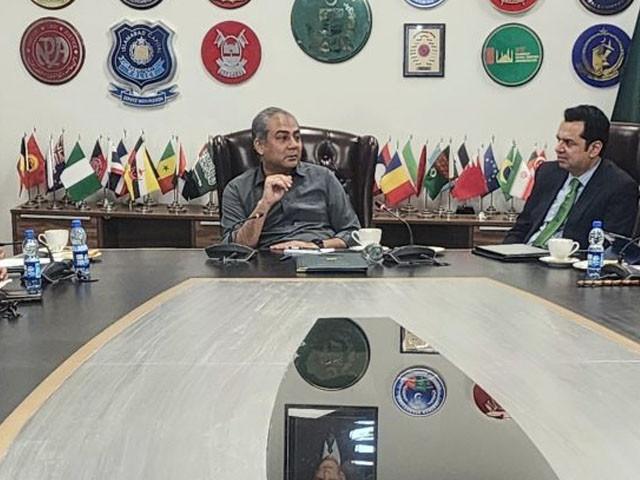Interior Minister Mohin Naqvi said Prime Minister Shehbaz Sharif and military leadership had played a central role in the Iran-Israel conflict and the next cease-fire between the two countries.
“Prime Minister Shehbaz Sharif played a crucial role in the ceasefire between Israel and Iran, and the military also played an important role in this regard. I do not want to go into more details, but the way the Prime Minister has negotiated with world leaders is something that we have to be proud of,” he said.
The 12 -day war, which began with Israeli military strikes not caused in Iran on June 13, resulted in 610 deaths, including nuclear scientists and high -ranking military commanders. In retaliation, Iran strikes killed 28 in Israel.
The United States joined the conflict on June 22 with bunker-business bombings on Iranian nuclear installations in Natanz, Fordow and Isfahan. A commercial cease-fire in the United States was reached on June 24, shortly after the launch of Iran missiles in the largest American air base in the Middle East, located in Qatar.
وفاقی ویر داخلہ محسن • اور ویر مملکت Bear مکاتب فکر ی 14
محرم الحرام خصوصا عاش Rin pic.twitter.com/w4yyr1l7si– Ministry of the Interior GOP (@Moiofficialgop) July 3, 2025
Recalling the recent Pakistani-Indian conflict which ended after the US President Trump negotiated a cease-fire, heus that during the attack on India, Marshal Asim Munnir was firm and strong, and his determination was that India should suffer four times more.
The Minister made these remarks at a meeting with religious scholars in Islamabad on Thursday, who focused on maintaining the law and order during Muharram.
Speaking on occasion, Naqvi appreciated the role of religious scholars in the establishment of peace. He suggested that the chairman of the Rue-E-Hilal committee is adopting a theme of unity among people from different schools of thought, encouraging them to work together without abandoning their own beliefs or interfere with others.
Pakistan-Indian conflict
The last escalation between Pakistan and India began on April 22, when a Pahalgam attack killed 26 people. India immediately blamed Pakistan for the incident. However, Pakistan categorically rejected the Indian blame.
Tensions also degenerated in the early hours of May 7, when the missile strikes reached six cities in Punjab and Azad Jammu and Cashmire (AJK), destroying a mosque and killing dozens of civilians, including women, children and the elderly.
Find out more: The French intelligence manager confirms the drop in burst by Pakistan
In a rapid military response, the Pakistan armed forces have shot down Indian war planes, including three Rafale planes. The confrontation was again intensified in the early hours of May 10, when India targeted several Pakistani air bases with missile strikes.
In retaliation, Pakistan launched Operation Bunyanum Marsoos, damaging Indian military facilities, including missile storage sites, air bases and other strategic targets.
On May 10, US President Donald Trump announced that a ceasefire had been reached as a result of intense diplomatic efforts overnight. A few minutes later, the agreement was confirmed separately by the Minister of Foreign Affairs Ishaq Dar and the Indian Minister of Foreign Affairs.




